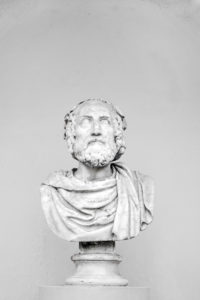As a leading expert in the field of psychology, I’m here to break down Aristotle’s thoughts on happiness and virtue in a way that’s easy for 16-year-olds to grasp. We’ll take a casual, everyday approach to understanding these ideas, so let’s dive in! 
Aristotle and the Pursuit of Happiness
Aristotle, a famous Greek philosopher, had a lot to say about how to live a fulfilling life. His ideas on happiness and virtue can help us better understand how to find balance and well-being in our own lives.
Finding Happiness through Virtue

One of Aristotle’s main ideas was that happiness (or “eudaimonia” in Greek) is achieved through living a life of virtue. To be virtuous, according to Aristotle, means to find the “golden mean” between two extremes, or vices.
For example, courage is a virtue that lies between the vices of cowardice (not taking any risks) and recklessness (taking too many risks). By finding the right balance between these extremes, you can lead a life that is both happy and good.
The Golden Mean and How to Find It
Aristotle believed that each virtue has a “golden mean” – a point between excess and deficiency where the virtue is at its best. To be a good person and achieve happiness, we must strive to hit this mark in various aspects of our lives.
Here are three tips to help you find the golden mean:
1. Avoid the vice that is furthest from the virtue or mean

By staying away from the extreme that is furthest from the virtue, you’ll be more likely to find the right balance.
2. Consider your own vices and work towards their opposite extremes
By identifying your own vices and working to correct them, you’ll be more likely to achieve the golden mean.
3. Be mindful of pleasure and pain
Aristotle believed that our actions are often driven by the pursuit of pleasure and the avoidance of pain. By being mindful of these feelings, we can better navigate our way towards a balanced life.
Virtue as a Path to Happiness
Aristotle believed that being virtuous was not only good for others but also good for ourselves. By exercising virtue, we become better people and achieve a sense of happiness and well-being.
It’s important to remember that nobody is perfect, and we all have room for improvement. The key is to strive for the golden mean in our actions and thoughts, so we can lead a life that is both happy and good.







